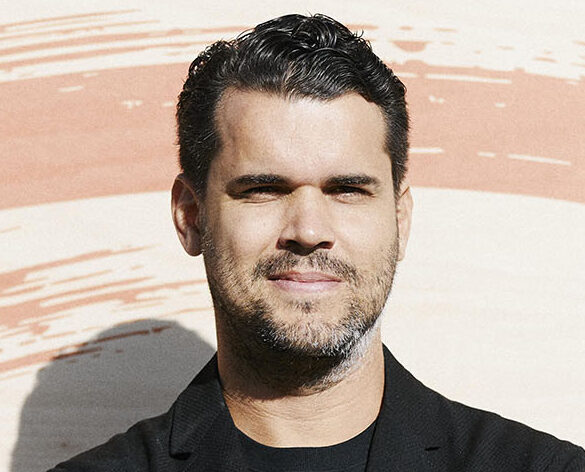Biography (as at 2022)
Tomas Diez is a Venezuelan Urbanist specialized in digital fabrication and its implications in the future of cities and society. He is co-founder of Fab Lab Barcelona at the Institute for Advanced Architecture of Catalonia (IAAC), the director of the Fab City Research Laboratory, and director of the Master in Design for Emergent Futures. He leads the Fab City Global Initiative in collaboration with an international team of thinkers and makers, and the European project manager for the Fab Foundation. Tomas holds a Bachelor degree in Urban Planning and Sociology by the University Simon Bolivar (Caracas – Venezuela), a Diploma in social work at the University of La Havana (Cuba), a Master in Advanced Architecture by IAAC, and a Diploma in Digital Fabrication from a pilot program to kickstart the Fab Academy by completing the class “How to Make Almost Anything”, offered by MIT’s Center for Bits and Atoms in 2008. He works as a close collaborator in the development of the Fab Lab Network together with MIT and the Fab Foundation.
Tomas co-founded the Exploring Emergent Futures platform in the Design Products department at the Royal College of Arts in London, and is co-founder of initiatives such as: the crowdsensing platform Smart Citizen, the social network FabLabs.io, and the artist residency StudioP52; he has been the organiser and co-chair of the FAB10 Barcelona, the 10th international fab lab conference and annual meeting hosted by Fab Lab Barcelona (IAAC) in 2014. Tomas has been appointed by The Guardian and Nesta as one of the top 10 digital social innovators to watch in 2013, and has been awarded by the Catalan ICT association as the entrepreneur of the year in 2014. His research interests relate to the use of digital fabrication tools to transform reality, and how the use of new technologies can change the way people consume, produce and relate with each other in cities.
Focus areas
- Enabling the creation of digital fabrication networks (Fab Labs and Fab City) to make them catalysts in the transition towards productive cities and bioregions.
- Understand the role of the design as a practice to create learning spaces to reconfigure our social relations and our relations with natural systems.
- Developing a framework called „meaningful design“ in order to understand new relations between nature, culture, and technology.
- enabling regenerative and distributive practices to revert the impact of industrialization in our social construct, as well as its impact on the environment, based on colonialists principles.

